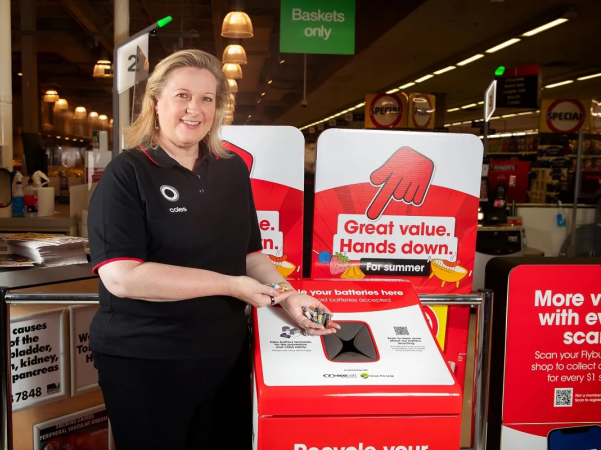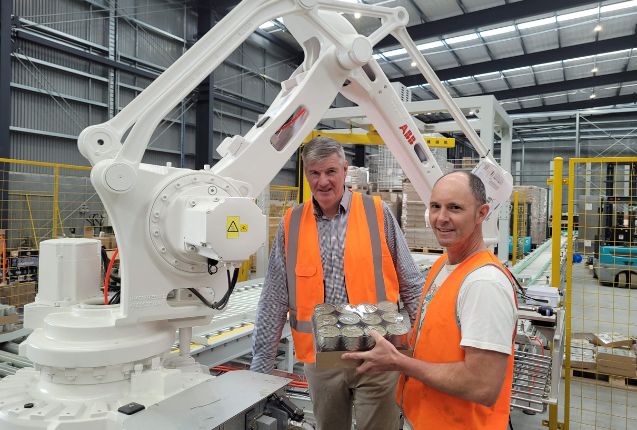Coles has installed 846 battery recycling bins at stores across Australia to give batteries a second life rather than going to landfill.
Coles has become an accredited participant in the government-backed battery recycling scheme B-cycle, and through this agreement, it has partnered with materials recovery companies Close the Loop and Ecobatt to manage the bins, battery collection, and recycling.
Brooke Donnelly, General Manager of Sustainability at Coles, said batteries are one of the fastest-growing waste problems in Australia.
“It’s estimated that Aussies have more than 150 million loose batteries in their homes but only 12 per cent are currently being recycled. By adding battery collection bins out the front of our stores we’re providing a way for our customers to recycle their batteries that is safe and convenient.”
The bins accept any brand of AA, AAA, C, D, and rectangular 6 and 9 volt batteries, as well as button cell batteries. Customers who use the collection bins to recycle their batteries are required to tape the ends with sticky tape around the battery terminals to help prevent fires.
Libby Chaplin, CEO of B-cycle, was pleased to welcome Coles to the program.
“Before the scheme launched in 2021, 63% of people said they were disposing their batteries in their general waste and recycling bins. Thankfully that is changing now and through our partnership with Coles, and the addition of 846 bins at the front of their stores, more customers will learn that batteries need to go to a dedicated battery drop-off point instead.”
Kesh Nair, spokesperson for Close the Loop, said disposing of batteries correctly can prevent a number of risks such as leakage of hazardous materials into the environment.
“The bins use innovative technology that can detect fire risks before they occur and notify us when the batteries are ready for collection. The batteries are then taken for sorting and recycled into materials and products like new batteries. This is a far better alternative than going to landfill, where there is additional risk of leakage of hazardous materials into soil, water and drainage systems,” said Nair.
To stay up to date on the latest industry headlines, sign up to the FMCG Business eNewsletter.
Source: www.c-store.com.au



